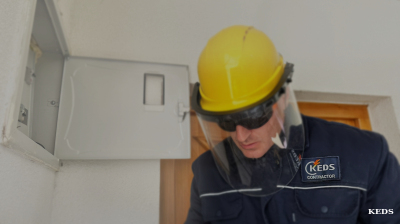Kosovo’s new government led by Prime Minister Avdullah Hoti decided on June 6 to abolish the measure of reciprocity on import taxes with Serbia, thus opening the way for re-launching the normalisation dialogue between the two countries.
Serbia, which does not recognise the independence of its former province Kosovo, welcomed the decision, after suffering huge trade losses for more than a year after the 100% taxes were imposed by the Kosovan side.
The decision came three days after the new prime minister took office and less than a week after the previous government led by Albin Kurti reinstated the tariffs, saying they would only be lifted if Serbia takes reciprocal measures.
Kurti’s government abolished the 100% tax on all products from Serbia in March, but it replaced it with reciprocity measures on May 30 in an effort to pressure Belgrade to recognise Kosovo as a state.
The new cabinet said it repealed the March 20 decision of the previous government to gradually implement reciprocity with Serbia and the decision of May 30 to supplement the amendment of the first decision on this measure.
Ministers from Hoti’s coalition partner, the Alliance for the Future of Kosovo (AAK), led by former PM Ramush Haradinaj who imposed the 100% taxes on Serbian imports in November 2018, voted against this decision.
"The decision was made in cooperation with the international partners. We have committed ourselves to removing obstacles to the continuation of the dialogue [with Serbia],” PM Hoti said.
However Hoti added that if the dialogue with Belgrade does not give the expected results, the Kosovan side reserves the right to restore the measure of reciprocity.
Hoti's government wants Serbia to remove all barriers to dialogue, such as the campaign by Belgrade to prevent international recognition of Kosovo.
Serbian PM Ana Brnabic welcomed the decision by Pristina to abolish the reciprocity measure saying that it is good for all people in Kosovo and the region.
EU special representative for the Belgrade-Pristina Dialogue Miroslav Lajcak also welcomed the new Kosovan government's decision.
Meanwhile the first truck from Serbia, from the city of Prijepolje, entered Kosovo after the reciprocity measure was abolished. The truck driver waited for 12 hours at the Jarinje border crossing before he entered Kosovo, local media reported.
Serbian truck drivers hope that the abolishment of the reciprocity measure will mean the normalisation of freight traffic between Kosovo and Serbia.
Re-start of Belgrade-Pristina talks
The decision on the removal of the reciprocity was made under US and EU pressure to open the way for the restart of the EU-mediated talks between Belgrade and Pristina.
The prevailing opinion among the Kosovan public is that the new government was created under the political auspices of President Hashim Thaci, with the intention of removing the reciprocity measures that had been blocking the dialogue with Serbia.
Commitment to the continuation of the dialogue and the abolition of the reciprocity measures that practically prevent the import of goods from Serbia, in order to smooth relations with the US and the EU, is part of the coalition agreement between Hoti’s Democratic League of Kosovo (LDK) and the Serb List, and also of the government programme.
Hoti said earlier that he will lead the negotiations with Serbia, but also gave the authority to Thaci to have a role in the process.
"The parties in the dialogue that are negotiating will be the government that is accountable to the assembly, while the president represents the country on the basis of constitutional competencies," according to the government's programme, which refers to the dialogue between Kosovo and Serbia.
Kurti, who heads the Vetevendosje party that won the October snap election, said that the new government is illegal as his party is the biggest in the parliament. He added that protests are unavoidable but they will be peaceful.
According to Kurti, the solution of the political situation in Kosovo is holding snap elections after the previous early vote held in October last year did not bring a stable government. However, the Constitutional Court ruled that elections were not required, allowing Hoti to form a new government.
News

Mali blockade deepens as jihadists choke vital trade routes
Mali’s junta has sought to reassure citizens after Islamist militants tightened a blockade on highways feeding the capital, torching lorries and kidnapping foreign drivers in a campaign analysts warn could strangle the economy.

Flydubai launches twice-weekly service to Moldova's capital
Flydubai becomes first UAE carrier to serve Moldova with twice-weekly Chișinău flights from Dubai, expanding European network with connections to underserved destinations.

Nigeria clears $18.2bn in oil and gas field development plans to lift output
The $18.2bn worth of approvals mark among the largest investment commitments in Nigeria's O&G sector since the 2021 Petroleum Industry Act (PIA) was adopted, underpinning the target to raise crude capacity above 3mn bpd.

Kazakhstan bolsters rapid response capabilities to potential security threats
Ministry of Emergency Situations to take lead in organising territorial defence.




